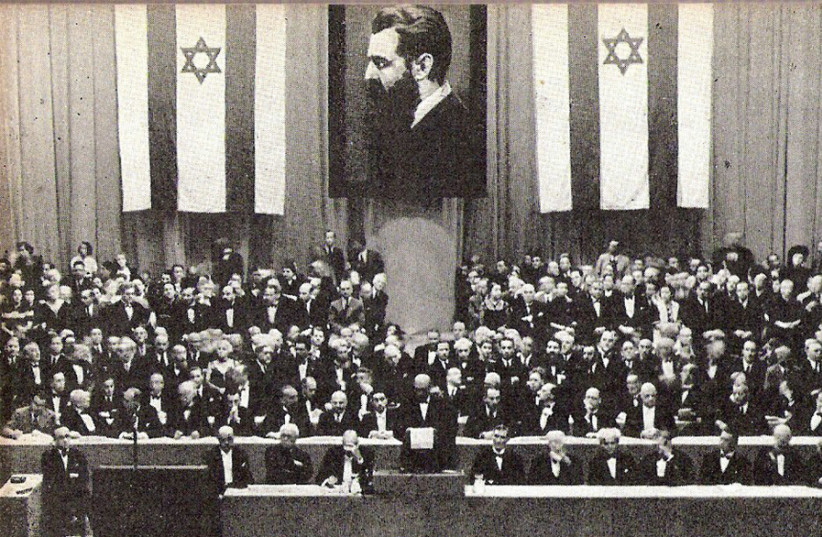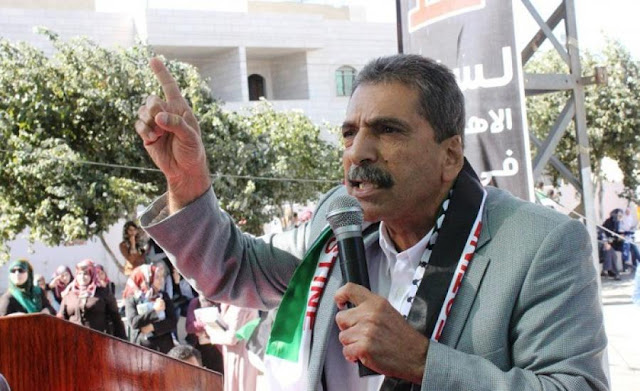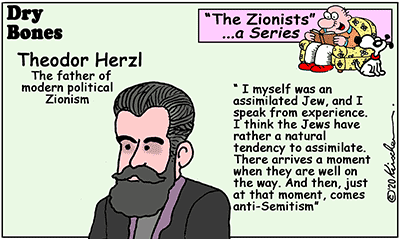A Zionist success 125 years later
By far, the most important accomplishment of the Zionist movement was its success in making Israel the home to the largest amount of Jews (close to a majority of Jews live in Israel) and making it ー almost from scratch ー the place where the continuation of Jewish peoplehood is guaranteed. Thanks to this enterprise, the Jews returned to their historical homeland as a functioning people, their national language was revived and their historic sovereignty was applied.Where it all began: The gathering that sparked Zionism
The bridgehead established by a minority with a radical vision in the Land of Israel became the vibrant center of Jewish life. What began two generations ago as a third-world, poor, and weak country that had only 6% of the Jews, transformed thanks to the dedication and talent of later generations into a regional democratic power with a thriving economy and top-notch accomplishments.
More important than the successes of the past are ensuring gains down the road. It is almost inevitable that Israel will continue to be the focus of Jewish life at the expense of the second most important Jewish concentration ー North America. The widespread assimilation in younger generations, coupled with declining birth rates, compared with almost zero mixed-marriages in Israel and a very high birth rate ensures that Israel will be the epicenter of Jewish life.
The major challenges within Israeli society are much more dangerous than the threats posed by Iran and its proxies. Israel has a successful track record of weathering through tough times, just like after the Yom Kippur War and the Second Intifadah. What should worry us is the radicalization of some Haredi groups and the continued control over millions of Palestinians. Those two trends threaten the democratic and pluralistic nature of the Zionist enterprise that have made it so successful over the past 100 years. Without them, Israel will devolve into a backward, authoritarian state that could threaten the future of the Jewish people.
President Herzog will not be the only dignitary to honor the ceremony with his presence. Also among the guests are former Swiss President, Guy Parmelin, and dignitaries from Israel and abroad, including Diaspora Affairs Minister Dr. Nachman Shai, Former IDF chief of staff and former Defense Minister Moshe (Bogie) Ya'alon, former Mossad Head Yossi Cohen, Chairman of the Jewish Agency Maj. Gen. (Ret.) Doron Almog, and publisher of the Israel Hayom, Dr. Miriam Adelson.125 years on, this is my Zionism - opinion
Among the hundreds of attendees at the concert hall in Basel there will also be 125 young Jewish entrepreneurs from all over the world and Jewish leaders from 38 countries. Organizers say that if they had space for 2,000 people, it would also be filled, because of the huge demand.
Guests participated yesterday in the first part of the event, which included discussions on topics such as "The Herzl Conference on Leadership," which focused on modern Zionism following in the footsteps of Herzl's vision, and a conference on socio-economic entrepreneurship.
Basel was decorated in honor of the event, which is a milestone in itself for the city's history. The Stadtcasino Basel hall is a central site that was founded in 1876 and serves, among others, as the home of the local symphony orchestra and for four years, since 2016, has been closed for a thorough renovation, "to bring it back to its days of glory."
On Monday, the main event of the conference in the renovated hall in Basel will host many Jewish men and women, who are a source of pride for the State of Israel, which in the summer of 1897 had just been put on the drawing board and was a distant dream. "When the war broke out in Ukraine, the World Zionist Organization, the Jewish Agency and the State of Israel joined a rescue mission, which brought 18,000 Jews to Israel," Hagoel says. "I have never seen a country take action like this to save its people. This is the difference between today and 125 years ago, a time when Israel did not exist."
This week marks the 125th anniversary of the First Zionist Congress held in Basel, Switzerland. In celebration of this milestone, a conference and gala are being held in the very same city and casino where the first Zionist Congress was held. While Theodore Herzl himself is not in attendance, the current chairman of the World Zionist Organization is, along with many other WZO department heads, President Isaac Herzog, Swiss officials, Israeli officials and hundreds of representatives of Israel and Diaspora Jewry are all there to discuss Zionism, Israel and celebrate this very special occasion. It seems only fitting that in honor of the 125th anniversary of the rebirth of Zionism and, of course, in recognition of the upcoming 75th Israel Independence Day that we as a nation should take the opportunity to reflect on what today’s Zionism and the state of Israel means to us.Basel 125 years later: Our biggest challenge is anti-Zionism -opinion
What Zionism and Israel mean to us
When the first Zionist Congress took place, Zionism was not exactly a trendy idea. It took time, effort and years of work for the idea of Zionism to permeate the culture of the time. Interestingly, we find ourselves in a similar situation today. While there was a period in time where Zionism became a popular idea that ultimately led to the ushering in of the new State of Israel, recent years have again presented a downturn in the acceptance and popularity of the Zionist ideal. Theories as to why this is may vary but I think that the core issue remains the same. There is a lack of consistency and understanding of what Zionism means today.
We Jews are no longer the same wandering, constantly persecuted and beaten people we once were. Of course, we have our challenges – antisemitism is on the rise, Iran is creeping ever closer to obtaining nuclear weapons, etc. But all in all we are a flourishing, successful and strong nation with a mighty country to call our own. And yet, we still continue to find ourselves faced constantly with the question of the relevance of Zionism and the need for the Jews to have their own state.
Imagine if all of us took the time to think about the answers. It is at times easy to take Israel for granted – especially for those of us who were born well after the early days and wars of the state. If the Zionist mission is to continue, we must each recommit ourselves to its values. Really think about the question: What does Zionism actually mean to me and why is it still important?
Most of us know what the core mission of Zionism is: The right of the Jewish people to our own state in our ancient homeland, Israel. But this mission should also account for the global realities of our time.
AS JEWISH leaders return to Basel, antisemitism continues to be a grave issue with worrying manifestations that would have been familiar to people living in 1897. We also have seen new forms – like online hate and harassment, or the blaming and scapegoating of Jewish individuals and organizations for the actions of the Jewish state.
Last year, the Anti-Defamation League recorded the highest number of antisemitic incidents in the US since the 1970s. One major spike came during the conflict between Israel and the terror group Hamas in May 2021, when we tracked a 150% increase in incidents, including 15 assaults and grotesque displays of anti-Israel hate.
Jews were brazenly attacked in public places in major cities such as New York and Los Angeles simply for the crime of their faith and identity.
Likewise, in the US and around the world we have seen political leaders and candidates on the far-right parrot antisemitic talking points, and those on the far-left using anti-Zionist rhetoric that is antisemitism at its core.
In Boston, an antisemitic group created a “Mapping Project,” claiming to expose a sinister Jewish conspiracy with interconnected nodes of “Zionism, Policing and Empire.” They invoked classic antisemitic tropes and endangered the entire Jewish community, accusing houses of worship and service-oriented nonprofits of the libel of dual-loyalty.
At ADL, we are doing our best to combat antisemitism from all sides and fighting those who would seek to undermine Israel’s legitimacy. But the fact that such virulent antisemitism is aimed at “Zionists” – i.e., Jews – writ large is perhaps one of the biggest challenges of our time.
As I have said before, anti-Zionism is antisemitism. At this moment, there is a need for the entire Jewish world to stand together against this new and dangerous form of antisemitism.
We cannot guarantee a secure Jewish future without strong efforts to push back against the extreme anti-Zionism rampant in many countries and seeping into international forums and places like legislatures and college campuses.
Despite these obstacles, the Basel anniversary is a moment to celebrate. The Jewish people are much stronger now than we were in 1897. In the same ways that the First Zionist Congress offered strength to Jews around the world and redefined our narrative, we must endeavor to draw strength from that moment and let it nourish us to meet the challenges ahead.








































